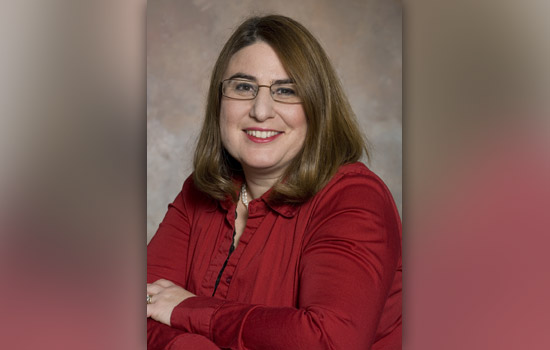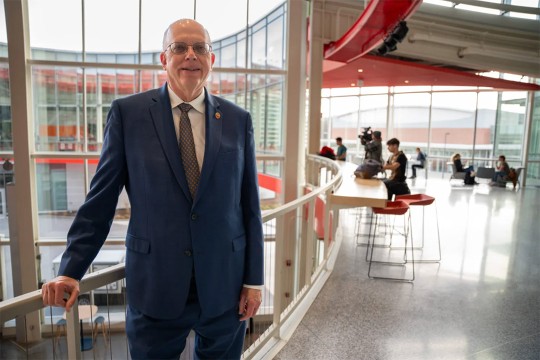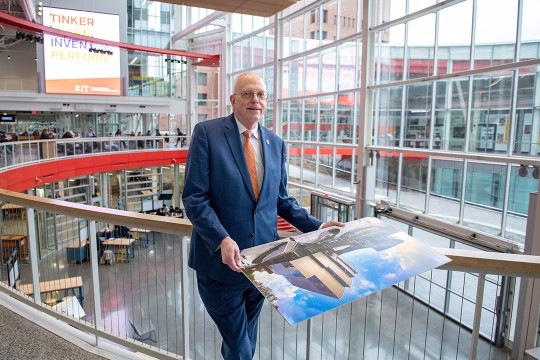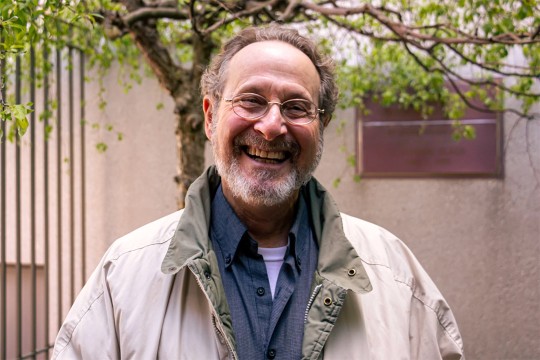RIT Professor Wins Scholarship for Biology Education Research
Dina Newman named a BEN Scholar
Dina Newman
Dina Newman is pushing Rochester Institute of Technology to the forefront of biology education research.
The BiosciEdNet Collaborative recently named Newman, assistant professor of biological sciences, a 2011 BEN Scholar. The program promotes the use of its digital library resources and student-centered teaching and learning methods in higher education, specifically in biological sciences lecture and laboratory courses, and in research training programs.
Newman is part of the third cohort of BEN Scholars. During her 18-month-long assignment, she will develop a submission to BioSciEdNet—a digital library of resources for biology education—create outreach activities, and test a digital resource in the classroom.
Discipline-based education research questions how students learn. The approach examines ways to guide undergraduates from novice to practitioner. The trend grew out of physics departments across the country that struggled with high failure rates and misconceptions, Newman says. “The students could do the formulas, but couldn’t understand them conceptually.
“Lecturing is the most passive way to learn,” she continues. “The idea is to be more active. Students learn best if they have a part in constructing knowledge for themselves.”
As a BEN Scholar, Newman will explore “Evidence-based Resources for Teaching Undergraduates in Biology.” She will test and gauge the efficacy of material from the BioSciEdNet digital library.
Newman and colleague L. Kate Wright, assistant professor of biological sciences at RIT, are members of the Society for Advancement of Biology Research, an organization that drew approximately 300 members to its July meeting compared to more than 7,500 that attended a recent meeting of the International Congress of Human Genetics, Newman says.
“The Society for Advancement of Biology Research is still a small group interested in improving the education we’re giving, using our knowledge of cognitive science,” Newman says. “We want to understand issues that undergraduate science students face.”
Newman and Wright are also members of RIT’s Science and Mathematics Education Research Collaborative in the College of Science. Newman’s BEN scholarship is aligned with the philosophy of this active new group of discipline-based education researchers from the departments of physics, biological sciences and chemistry.
Together, they are rethinking how to teach meiosis and other fundamental biological processes to their students. The difficult topic describes a type of cell division that creates eggs and sperm, and precedes an understanding of how genetics work.
Students in Newman’s and Wright’s classes were able to remember superficial features of meiosis as a process, but not the fundamental concepts about chromosome structure, creating a roadblock to deeper understanding. The professors altered their curriculum and reported their findings in “An Interactive Modeling Lesson Increases Students’ Understanding of Ploidy During Meiosis” published in the September issue of Biochemistry and Molecular Biology Education.
“The change we made in the curriculum significantly impacted student learning gains,” Newman says.















